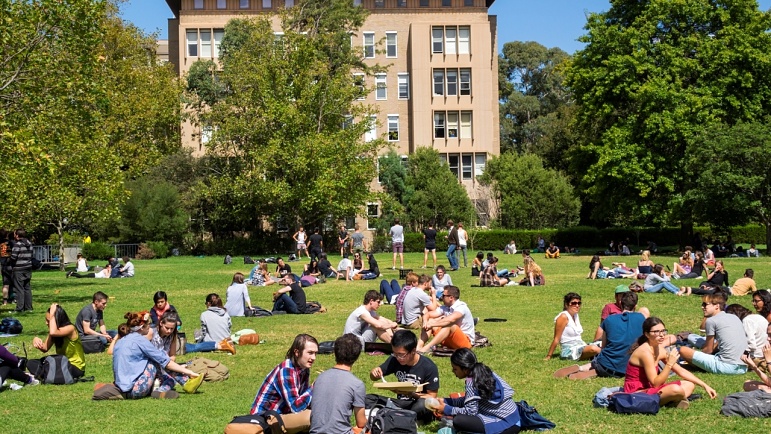Students’ Return Green Shoot for Education Sector
International students will be welcomed back to New South Wales from July under a pilot plan announced by the state government.
The plan, announced by NSW treasurer Dominic Perrottet, will allow 250 international students to fly into Sydney each fortnight from mid-year—just in time for semester two.
Upon arrival they will enter a mandatory quarantine period —regardless of their Covid-19 vaccination status—to be completed in purpose-built student accommodation (PBSA) which will be run by NSW police and health authorities, and with the universities picking up the cost.
This pilot program, which has been submitted to the federal government for review, will run parallel to the state’s hotel quarantine program and is expected to expand to 500 students a fortnight by the end of the year.
International Education Association of Australia chief executive Phil Honeywood, who will also speak at The Urban Developer’s coming Education Development vSummit, said flights into Australia would originate from strategic departure points.
“Through no fault of the university or government, you may have a situation in which only some countries can qualify to transit through a third country’s airport,” Honeywood said.
“This plan sends a message that we are giving international students priority, we just need time to prove to the wider Australian community that we can do it safely.”

The state government has not revealed the location of the student quarantine facility, but said negotiations with the provider were being finalised.
The announcement has been widely supported by the education sector and property industry after a difficult year for operators of PBSA with many seeking relief, such as land tax concessions.
Before the pandemic there were 600,00 international students in Australia, up by 167 per cent from 2006. Of these, 65 per cent rented their accommodation, spending upwards of $5.5 billion on property.
In January 2020, about 250,000 international students were studying in NSW—making the sector the state’s second-largest export.
According to Universities Australia, there are currently about 50,000 university students enrolled in NSW institutions that are based outside of the country and learning remotely.
Their absence has created a $5-billion hole into the NSW economy, which could balloon to $11-billion by the end of 2022.

Join us for a one-day virtual summit dedicated to the development of education precincts in Australia on June 24. Click here.
Scape Australia’s managing director Stephen Gaitanos said as the nation’s largest owner, developer and operator of PBSA, the company fully supported the initiative.
“Students represent Australia’s largest services export—which is currently leaving a $40 billion hole in the economy,” Gaitanos told The Urban Developer.
“There are devastating secondary effects of our missing international students that are felt across the wider economy; in retail, hospitality and the accommodation sectors.
“There is fiscal impact, there is labour shortage impact and there is a risk of Australia losing its relevance on a world stage whilst market share continues to decline.”
Scape was quick to respond to the outbreak in January 2020—enacting extensive Covid-19 protocols, including 14-day isolation management, wellness and security apps, 24-7 concierge and in-building nurse support at all of its facilities.
The student accommodation giant is currently on track to deliver a further 3000 apartments and more than 10,000sq m of communal, co-working and engagement space in Sydney across Redfern, Darlington, Kensington and Kingsford during the next three years.
“Our Anzac Parade and UNSW precinct strategy remains our immediate priority development focus with five brand new buildings under development,” Gaitanos said.
Gaitanos will provide some expert commentary alongside IEAA’s Phil Honeywood and Salto Systems hospitality vertical manager Cedric Duigou as part of a panel discussing the pandemic’s impacts on the current state of development, design and functionality across PBSA.
















